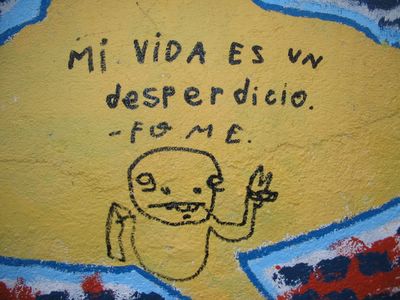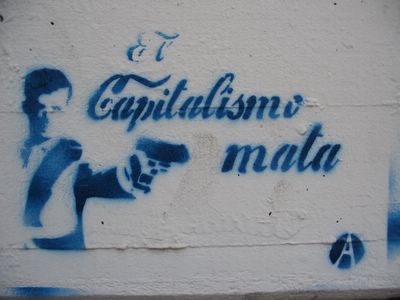Permission or Forgiveness?
Today in my American History class Professor McCardell talked about American History up through the civil war to be an effort to define America and an American Identity. A lot of the things he said echoed what Sam Huntington says in his book "Who Are We?" Professor McCardell defined the four prevalent themes of the time period to be: individual v. community, states v. nation, loose v. strict construction, altruism v. self-interest. These themes seem to echo each other in many ways. What he said that really struck me is that, in its essence these themes all come back to the question of asking permission or seeking forgiveness.
Permission versus forgiveness. It struck me a very poetic way of saying something that has been on my mind for awhile. American politics, American identity, and to a greater extent international politics and interpersonal relationships are defined by this distinction. Every person makes this choice daily and many people can be in large part defined by their tendencies to ask permission or seek forgiveness. It seems that too much of either is a dangerous thing. For example: a person who is always asking permission will inevitably breed and propagate bureaucracy in all they do. They will also be less willing to take the risks often prerequisite to true breakthroughs. On the other hand, a person constantly seeking forgiveness will step on a lot of toes and may set in motion actions or ideas that grow beyond their control before anyone is able to say stop. When a loud enough voice is raised in opposition the reaction will be far more severe than it would be for the person asking permission, but not nearly as much would have transpired in the meantime.
Based on the first lecture, the course looks to be a good one. I'm excited to have such an eloquent way of phrasing something that has been on my mind recently, and applicable to many aspects of humanity and their actions.
Permission versus forgiveness. It struck me a very poetic way of saying something that has been on my mind for awhile. American politics, American identity, and to a greater extent international politics and interpersonal relationships are defined by this distinction. Every person makes this choice daily and many people can be in large part defined by their tendencies to ask permission or seek forgiveness. It seems that too much of either is a dangerous thing. For example: a person who is always asking permission will inevitably breed and propagate bureaucracy in all they do. They will also be less willing to take the risks often prerequisite to true breakthroughs. On the other hand, a person constantly seeking forgiveness will step on a lot of toes and may set in motion actions or ideas that grow beyond their control before anyone is able to say stop. When a loud enough voice is raised in opposition the reaction will be far more severe than it would be for the person asking permission, but not nearly as much would have transpired in the meantime.
Based on the first lecture, the course looks to be a good one. I'm excited to have such an eloquent way of phrasing something that has been on my mind recently, and applicable to many aspects of humanity and their actions.
Read more









